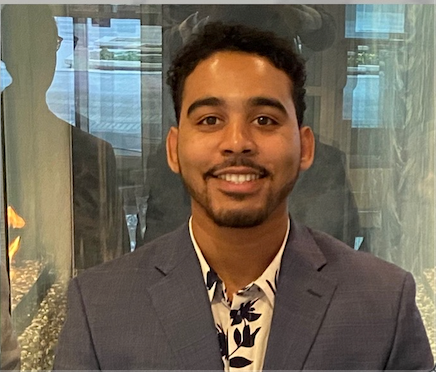By Jordan Anderson
Once a week, therapist Alex Rezcallah sits in his home office with a laptop and coffee to speak with a young woman with borderline personality disorder who lives in rural North Carolina. Early childhood trauma manifested into her abandonment issues and an excessive desire for attention. With Rezcallah, a Licensed Clinical Mental Health Counselor based in California, she was able to make significant progress, even lowering her blood pressure by controlling stress levels, despite having never met him in person.
Rezcallah maintained his relationship with her using telemedicine — providing health care from a distance through technology. For this client, telehealth was the only option. Not only is she from a poor, rural family, but the nearest counselor was miles from her home.

Certain patient groups, such as the one Rezcallah’s client is in, deal with a double whammy when it comes to finding care: Mental health is an underserved area in all of healthcare, and clients living in rural or socioeconomically challenged areas are often overlooked. The recent surge in telemedicine due to the pandemic offers hope. Telemental health can provide talk therapy, patient education, and medication management coupled with convenient, affordable, and accessible services.
“Every individual needs something different because of where they’re from, not just their nationality, but their culture within where they grew up, and how they have experienced life,” said Rezcallah about his experience using video chats. While he has worked with multiple clients with borderline personality disorder, many of which were able to have in-person care, the client he spoke of had a barrier preventing her from receiving that type of help.
This scenario is not unique. According to the National Alliance for Mental Illness, in 2018, 1 in 5 adults in the United States lived with mental illness and only half of them actually sought treatment. Difficulties such as proximity to a professional counselor, transportation, and cost play heavily into why many patients are left behind. Telemental health aims to lower these hurdles for underserved communities where access is limited.
Not having, or not being able to travel to, an appointment is not the most pressing reality for many people with mental health issues. Some are more concerned with the basic needs of simply paying for food and shelter. To illustrate this point, Rezcallah refers to Abraham Maslow’s hierarchy of basic needs — for food, water, and shelter to be met before a person can even consider tackling other psychological demands.
Other experts have the same outlook. “It is necessary to create initiatives that make access to mental health care in these communities as easy and stress free as possible,” said Dr. Olga Acosta Price, a clinical psychologist and associate professor at the Milken Institute School of Public Health, George Washington University. The idea is to create an environment where people from rural and underserved communities feel that mental health counselors truly understand their situation and can help them get back on track by assisting them in meeting their basic needs.
Fortunately, there are some new initiatives in place. Price notes that some high school and university students may have necessary resources to thrive, but others who grew up in less affluent households and face stressful conditions constitute another underserved community. Programs for students in need include access to counseling through telemental health services, as well as laptops or tablets and hotspots for reliable internet access provided by local schools to assist with therapeutic sessions with counselors.
However, mental health professionals fear these initiatives might disappear in the next year when recent waivers on the cost of counseling may no longer be available. These waivers include allowing practice across state lines, home visits, allowances for telehealth within all patient homes, and diagnosis and prescriptions without having to see a counselor in person.
Most of these new initiatives are intended to be temporary but significant lobbying to Congress by the American Psychological Association (APA) and others, may spur these changes to become permanent, said Dr. Vaile Wright, APA senior director of health care innovation.
In a world filled with a renewed commitment to be more just, humane, and inclusive, telemental health has the promise to reduce the financial and access barriers for the millions of Americans who do not seek mental health care. While, as Wright maintains, we are still gathering the statistics on the extent to which telemental health is being used in underserved communities, practitioners like her and Rezcallah assert that it is their profession’s responsibility to continue to create ways to compensate for the lack of adequate mental health care for all groups of people in need.
Jordan Anderson is a Master of Arts Candidate in Bioethics and Science Policy at Duke University, focusing on science communication. He is an intern at Sigma Xi Scientific Research Honors Society, which publishes the American Scientist magazine. Jordan spent his undergrad as a chemistry major, writing for ViaNolaVie, a New Orleans student magazine, where he has several publications. He has also contributed to publications at Duke University centered around STEM inclusion, an area he is passionate about. Follow him on Twitter @jordan_artsci or email him at jjander2018@gmail.com.
This story was produced as part of NASW's David Perlman Summer Mentoring Program, which was launched in 2020 by our Education Committee. Anderson was mentored by Karen Kreeger.





